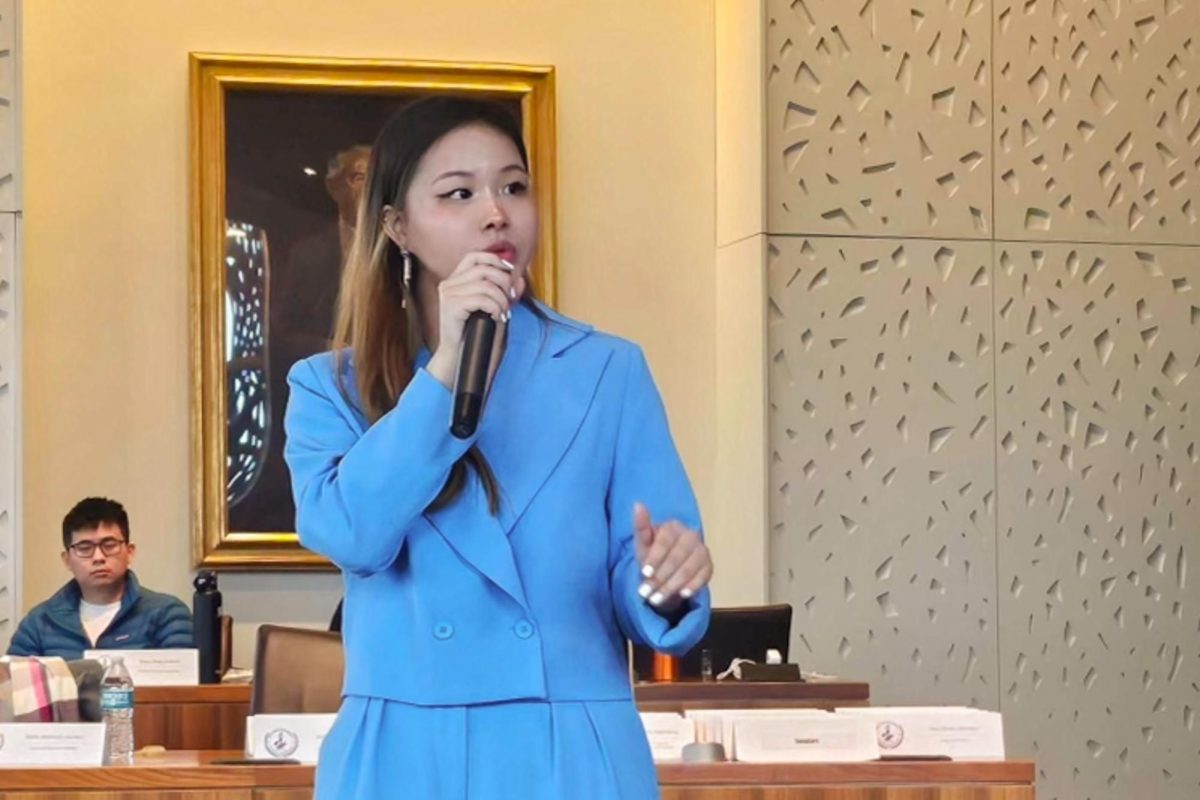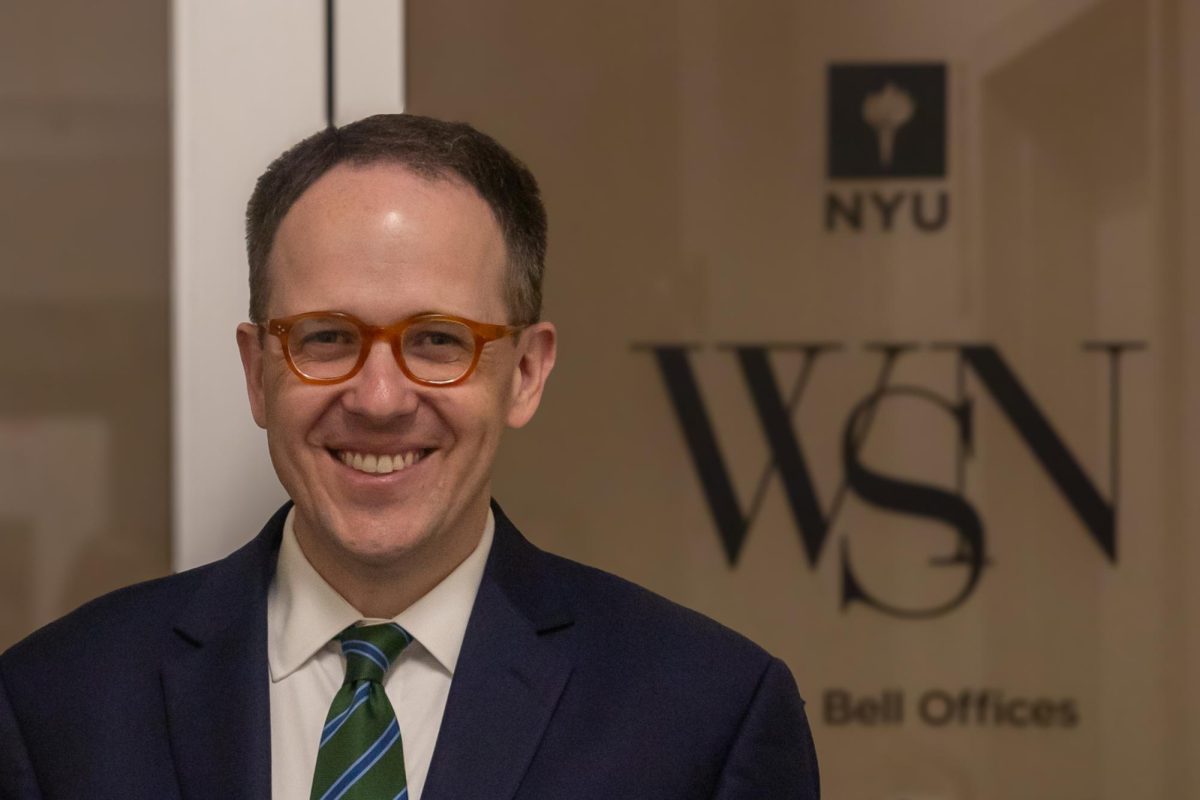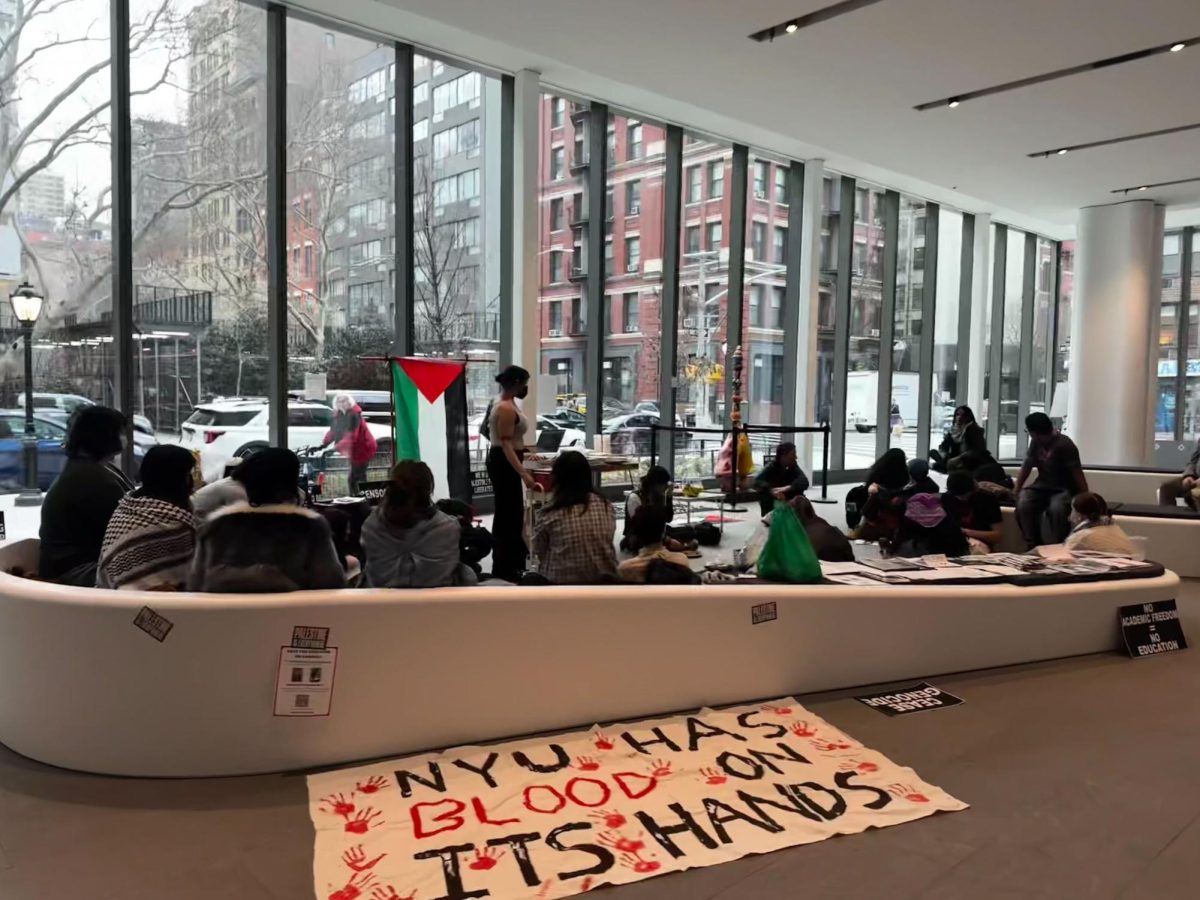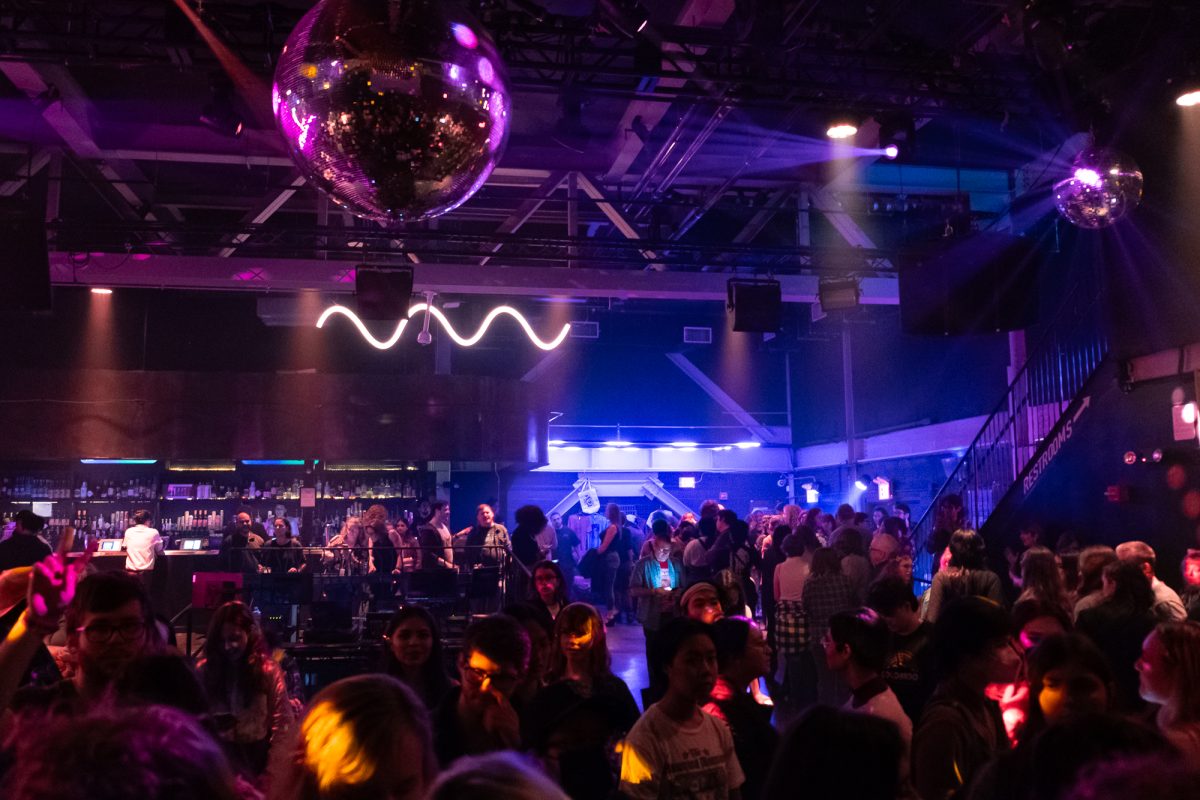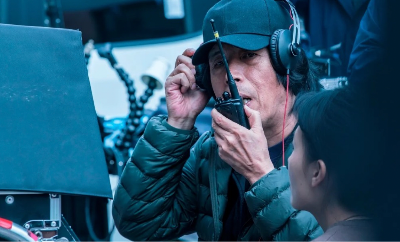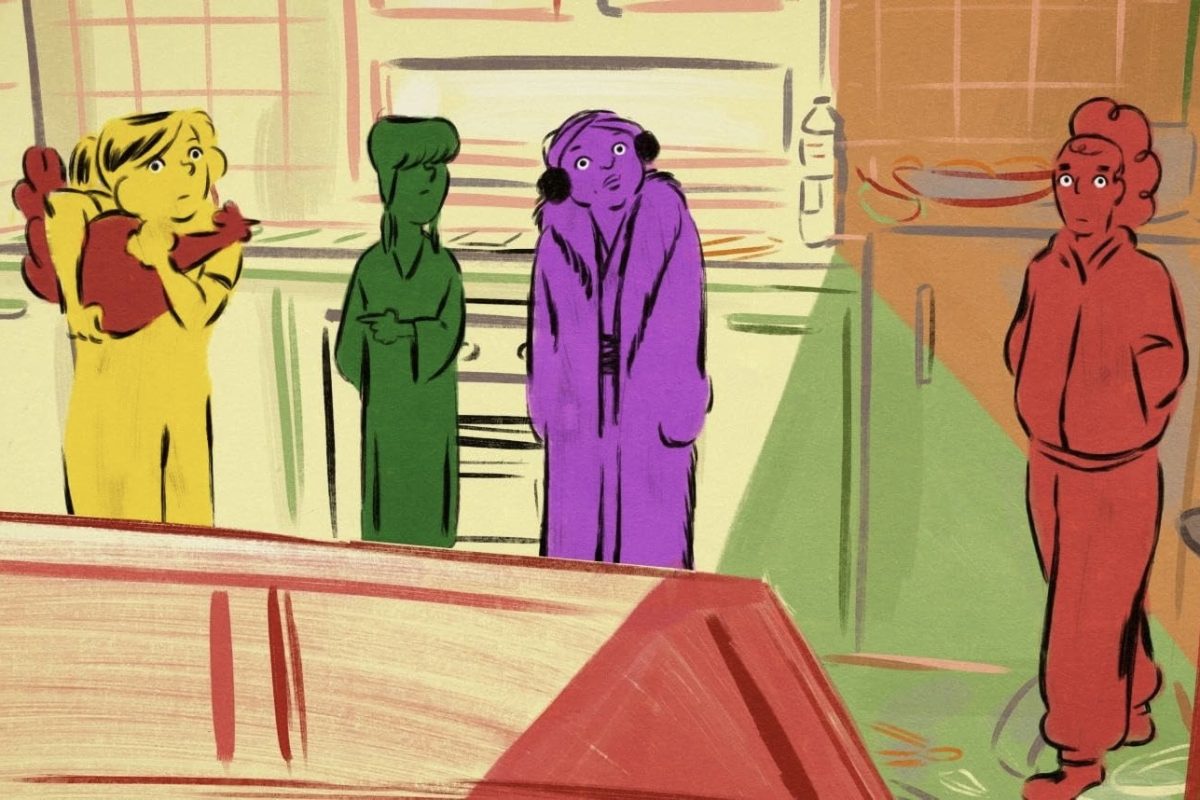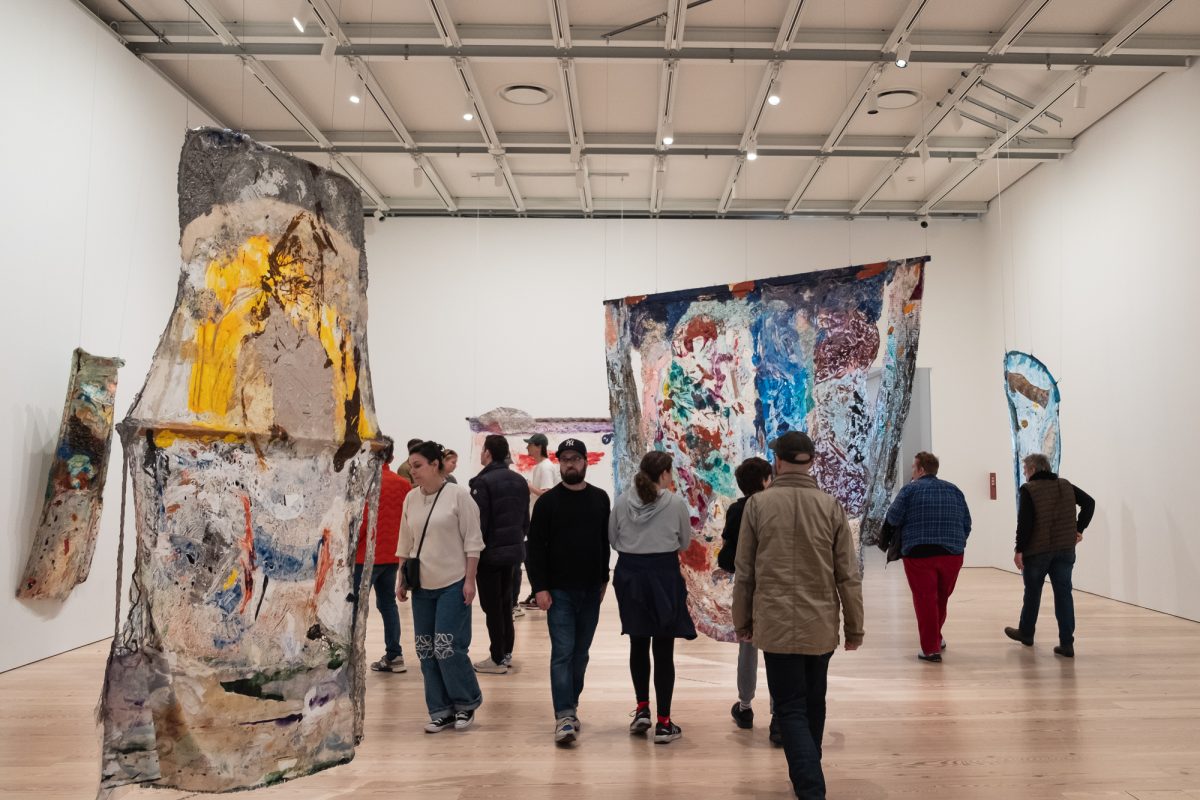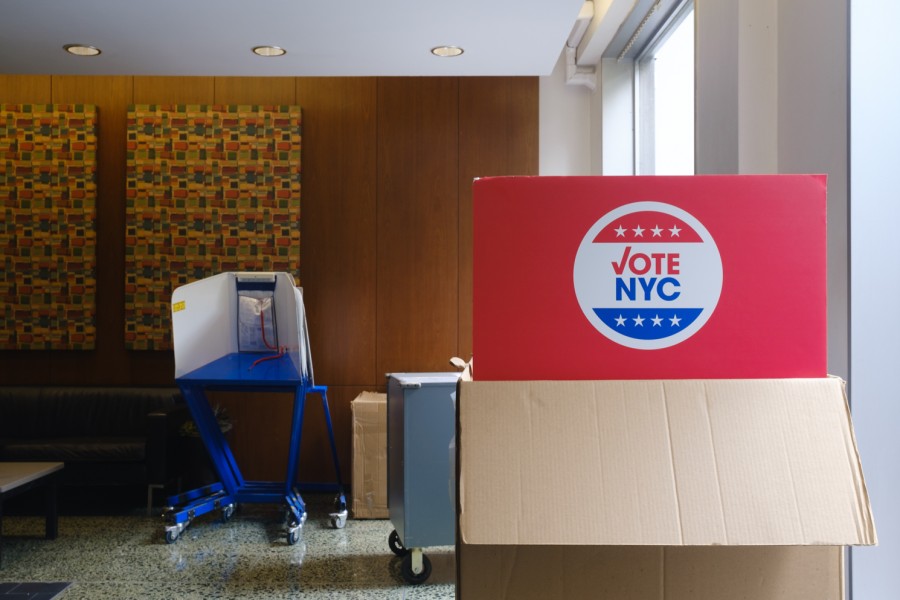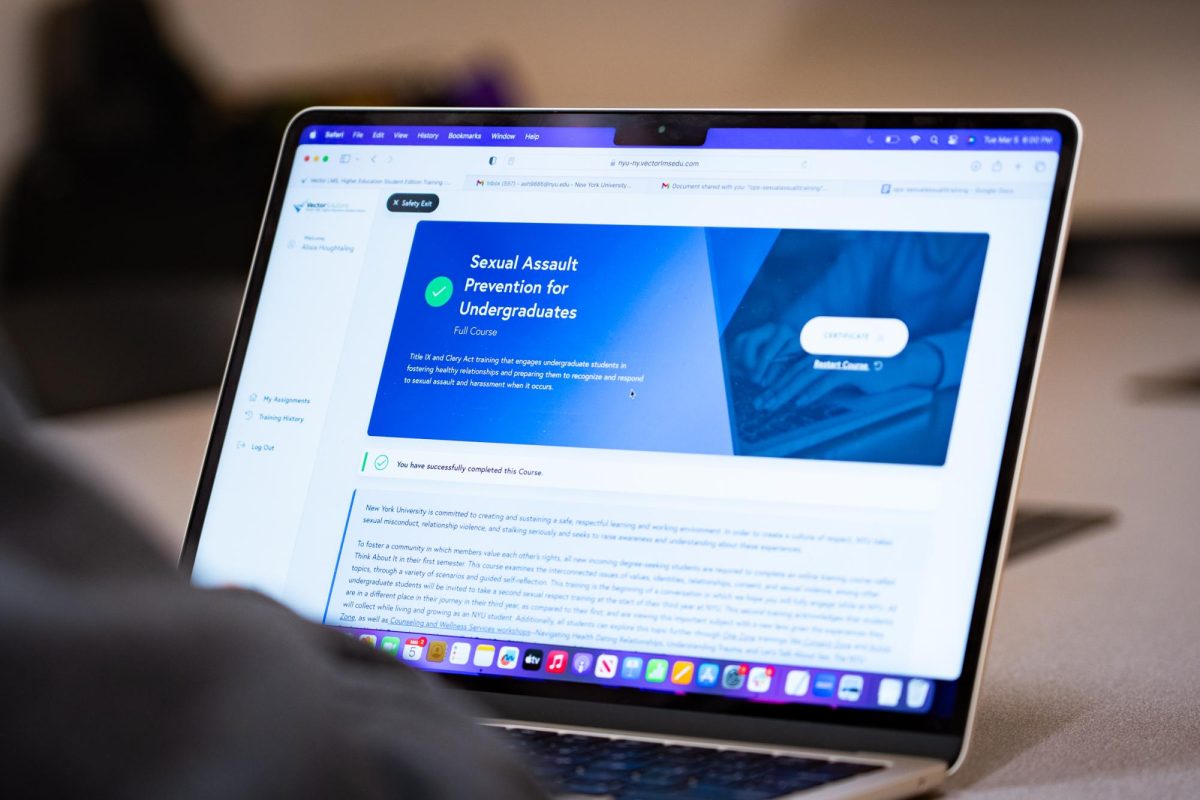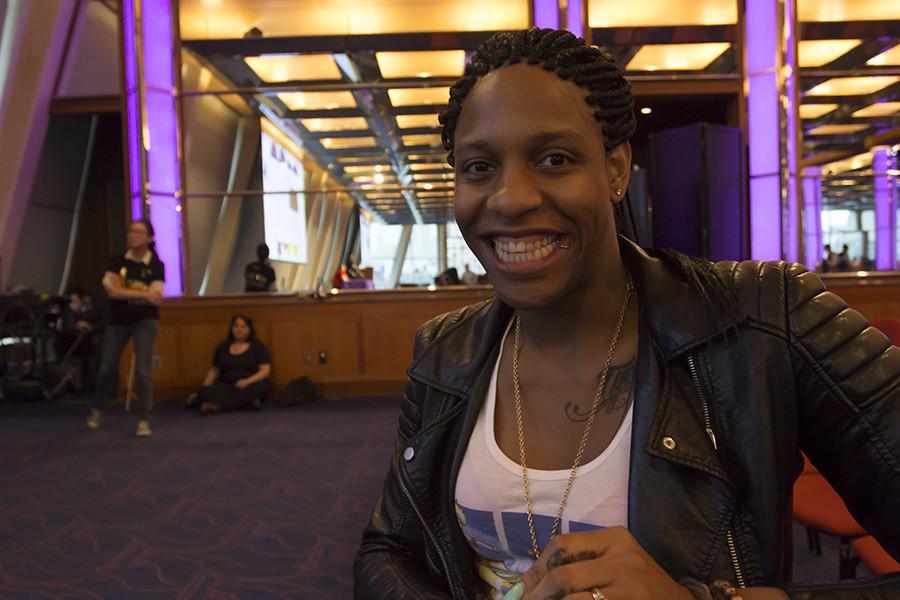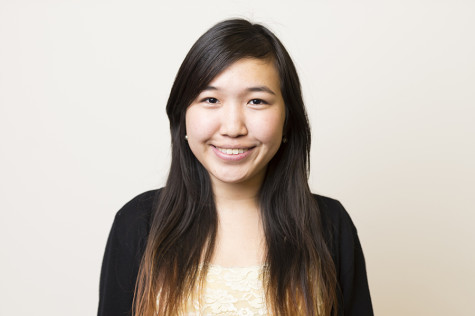Black trans activist discusses allyship
CeCe McDonald before speaking at NYU Ally Week’s event, Black Trans Lives Matter on Tuesday.
April 15, 2015
In June 2011, CeCe McDonald, while walking to the grocery store with friends, was attacked by a racist, transphobic mob. McDonald was threatened with up to 40 years in prison after killing one of her intoxicated attackers in self-defense.
Now McDonald is an advocate for the liberation of oppressed groups and a prominent voice in the fight for equality. On Tuesday, she gave a talk on allyship, mass incarceration and trans liberation at the Kimmel Center for University Life.
“For me, liberation isn’t about having trans women walk down red carpets,” McDonald said. “It’s having trans women live on a day-to-day basis without being harassed and without living in stereotypes society has placed on them.”
McDonald also said people should view allyship as a verb rather than a noun — a slogan Ally Week has used throughout its entire campaign. She added that allyship requires a tangible effort rather than shallow displays on social media.
“Don’t think of yourself as an ally just because you post pictures on Facebook or Twitter or Instagram,” McDonald said. “Social media isn’t going to stabilize. It’s not going to protect you from police brutality. It frustrates me when people call themselves allies, but let bigotry in their space. Allyship is about the work that you put in.”
Apart from trans struggles, McDonald also discussed the multifaceted intersections of oppression — such as mass incarceration and capitalism — that are deeply entrenched in society.
“When we think of mass incarceration we have this image of these big buildings with lots of people in them, but it’s deeper than that,” McDonald said. “It’s about capitalism. It’s about profiting on black bodies. It’s about bias allotted in society and takes away from the potential people of color have.”
McDonald also said mentally disabled communities are oftentimes disenfranchised and argued that more resources should be made available to them.
“I always talk about mental health when talking about the prison industrial complex because people with mental disabilities don’t have resources to go to the proper places to get treatments that they need,” McDonald said. “Why are so many prisons being built and so many schools are being torn down?”
Attendee Adriano Contreras agrees and supports McDonald in her struggle for a more complete view of oppression.
“I think one of the most important things Cece contributes to this struggle is that she helps connect the struggle for trans liberation to the overall struggle against racism and other intersecting oppressions and sees that as a part of the totality of fighting against oppression,” Contreras said.
Steinhardt junior Onid Larosiliere said McDonald’s words gave her new insights into the difficulties trans women face in their daily lives.
“Before I came to this event I had no idea of the struggles of a trans woman, especially a black trans woman,” Larosiliere said. “She brought everything into perspective. Her speech will definitely motivate change. Now that I know more, I will actively be more respectful and my attitude will be more positive.”
Despite all of the hardship and backlash that McDonald faced, she said she refuses to give up on advocating for change.
“Society wants me to be as invisible as possible, but that’s what we’re fighting for — visibility,” McDonald said.
A version of this article appeared in the Wednesday, April 15 print edition. Email Christine Wang at [email protected].





